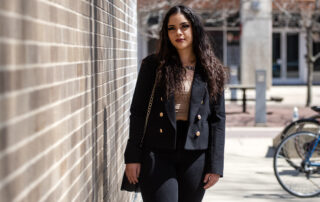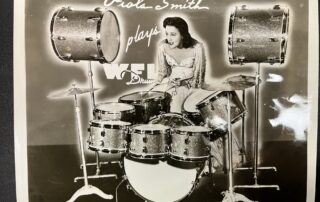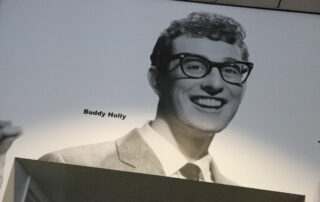“Will my healing be televised?”
These words are painted in commanding red letters as part of a 12-foot portrait mural on the exterior wall of the Overture Center on the busy downtown streets of Madison, Wisconsin. The portrait shows a young person with huge teardrops falling from her eyes surrounded by images of fire, roses, butterflies and an excerpt from an Audre Lorde poem.
Isha Camara, the mural’s artist, is a performance poet and visual artist hailing from South Minneapolis. Camara spent a number of years living in Madison while she earned her degree from UW-Madison. A participant of the First Wave Program, Camara’s poetry taps into topics and emotions that draw from her identity and own personal experiences as a Black Muslim woman.
“Will my healing be televised” are words that Camara asked rhetorically in the wake of George Floyd’s murder. She wonders, “Are we prioritizing healing just as much as this revolution? As much as these protests?” She describes healing as a process. A deeply important emotion she explores in her poem that is painted alongside the mural. She says, “healing is not often depicted as an emotion, but more as an action,” but Camara describes healing as an event – a process that involves self-care, self-sustainability and having needs.
“Being in Madison, I just always felt like I was a student here. With the mural, I was able to be part of the Madison community in a way that I hadn’t ever been before.”
Camara says she was asked to paint the mural by the Overture Center and City of Madison. It took three full days to complete. She enlisted friends to help and savored the time spent installing her art in such a public manner. While observing Camara painting, a 12-year old girl remarked that Camara was painting with her favorite color, sky blue. An older man said he had lived in the city for 40 years, and had never seen murals such as hers. It is Camara’s first mural. The feedback and engagement with the community makes her feel celebrated.
Referring to an original quote from Emma Goldman, she says, “Audre Lorde wrote – ‘If I can’t dance, I don’t want to be part of your revolution.’ And I’m like, yes, that’s it. That’s what matters to me.”










